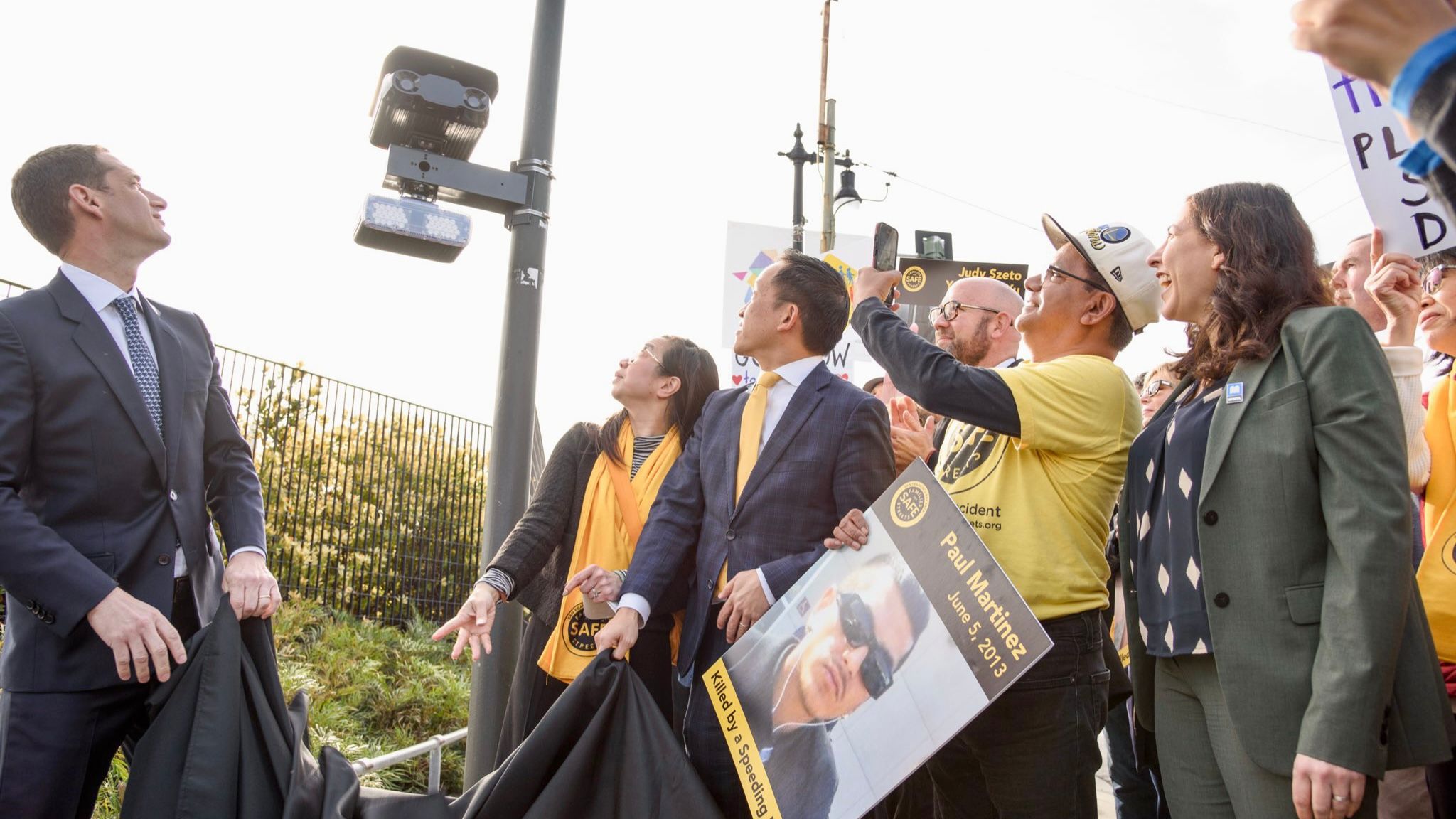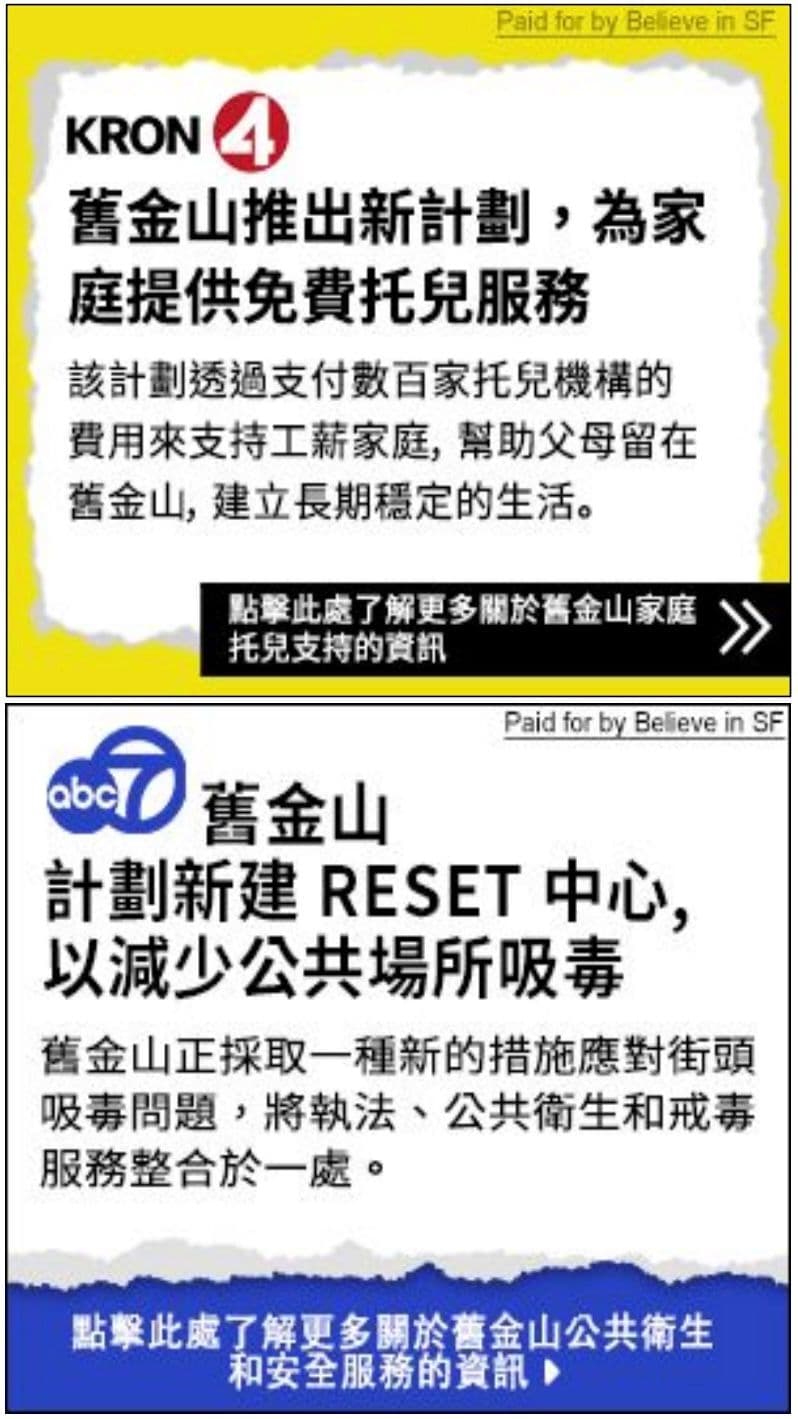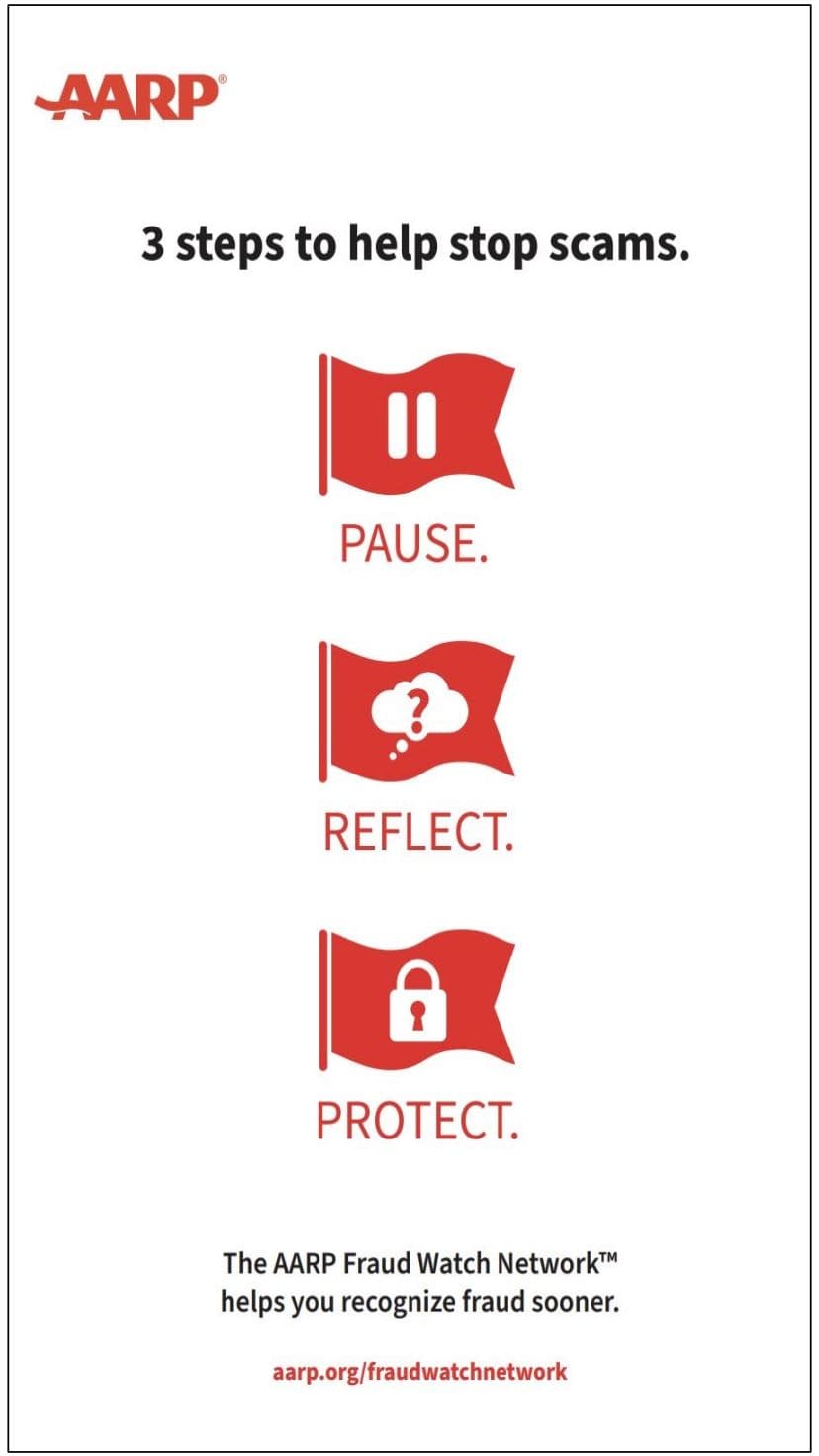12 speed safety camera systems out of 33 begin to operate in San Francisco by first issuing warnings instead of citations for 60 days


SAN FRANCISCO — San Francisco has become the first city to implement the automated speed camera enforcement program under the California Assembly Bill 645 (AB 645). 12 street segments out of 33 in San Francisco have been in operation with their cameras on for the city to issue warnings for 60 days to drivers who are traveling over posted speed limits.
Mayor Daniel Lurie announced the enforcement of the program on March 20 at the intersection of Columbus and Lombard streets in North Beach with pedestrian safety advocates who proposed the idea of introducing AB 645 in the state legislature in February 2023.
Lurie said speeding has been the number one cause of serious injuries and fatalities on city streets, and speed cameras have been proven to improve safety.
“No matter how you get around our city, you should be able to do it without fearing for your life,” said Lurie. "When I see a speeding car, I worry about my kids' safety, just like any parent would. Public safety has always been my top priority, and that includes safer streets for everyone."
"That's why I am proud that San Francisco will be the first city in California to implement speed safety cameras, adding an important tool to prevent reckless driving and make our city safer," said Lurie.

Under AB 645, 6 California counties/cities, Los Angeles, Glendale, Long Beach, San Francisco, San Jose, and Oakland, are allowed for the use of automated speeding cameras as a pilot program for 5 years in response to the rising traffic fatalities.
The bill imposes a fine of $50 for drivers going 11-15 miles per hour over posted speed limit, $100 for motorists going 16 to 25 miles per hour over, $200 for going 26 miles per hour over, and $500 for going 100 miles per hour or more.
Drivers who are cited under the program with low incomes or on public assistance can qualify for a discounted citation.
The San Francisco Municipal Transportation Agency (SFMTA) Board of Directors approved 33 speed camera locations/street segments in Spring 2024 based on the data of traffic injuries and fatalities in the city.
The latest information released by SFMTA indicates that all 33 street segments have been installed with automated speed cameras. 12 of them have been in operation with the cameras being activated to collect the speeding data. The dates for operation at other 23 street segments have not been announced yet.

Once all the safety cameras are activated, there will be a 60-day no-fee warning period prior to citations being issued, SFMTA Director of Transportation Julie Kirschbaum said.
The SFMTA has been educating drivers about the speed safety camera program with over a year of outreach that has included signs and ads throughout the city. Camera locations are accompanied by signs to notify drivers that speed is photo-enforced and that they need to slow down, according to the SFMTA.
AB 645 does not allow the SFMTA to use revenue from the speed safety camera program to address its budget deficit. Kirschbaum said the law would permit revenue from citations to help fund additional traffic calming improvements in the city.
- San Francisco becomes a newest local partner of Dolly Parton’s Imagination Library in the Bay Area to offer free books to all young children
- California state employees alarmed by demand to prove their citizenship or work eligibility
- “No Red Lanes on Ocean Avenue”, Chinese American merchants, residents and community members in San Francisco say
- Open Forum: Strong protest against unilateral street closure decision for SF Chinatown night market without merchant consultation
- Interim Police Chief Paul Yep honored for leadership with historic low crime rate and record high police hirings
- An increase in flu activity seen in SF Bay Area, experts recommend everyone aged 6 months and older to receive the flu vaccine
- SB 1234 is fully in effect in 2026 and requires employers to offer retirement plans to all employees, full-time, part-time & short-term
- Six power outages in Sunset District impact residents and businesses among strings of outages in San Francisco in Dec. 2025






